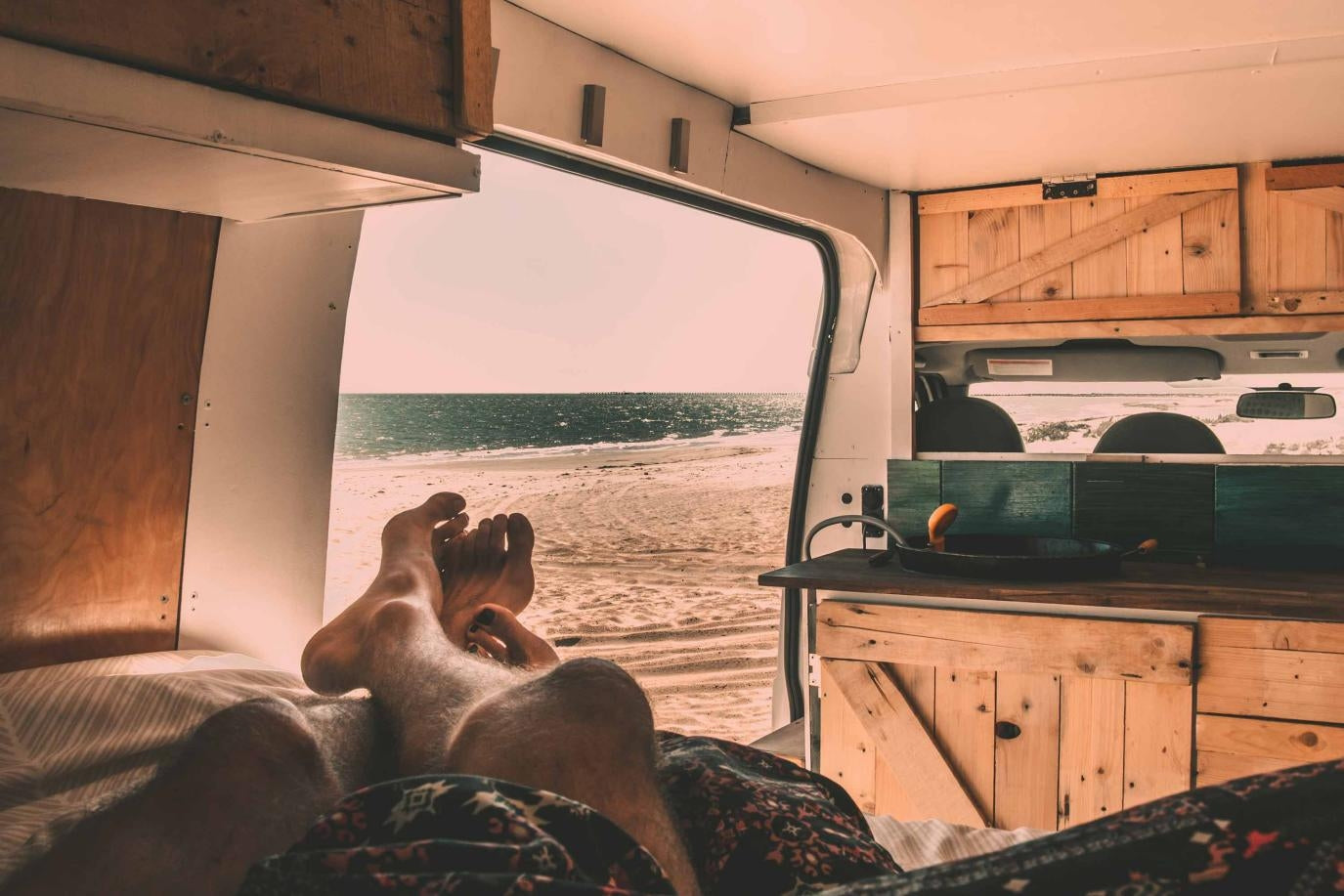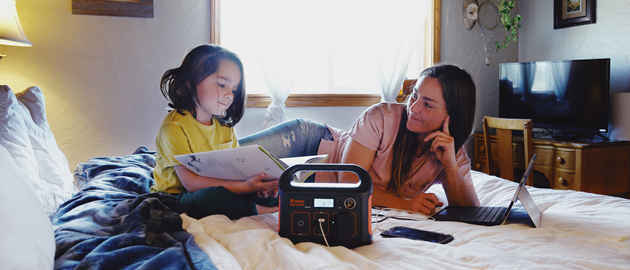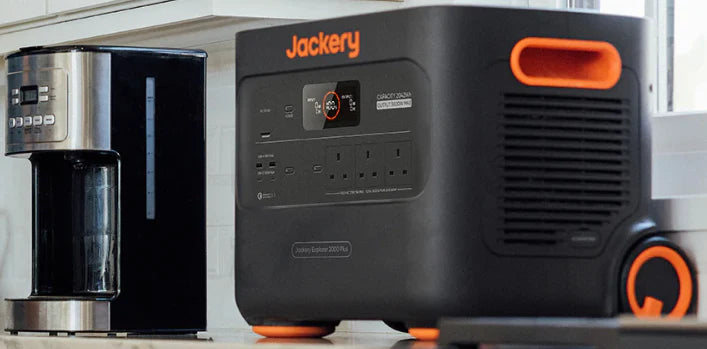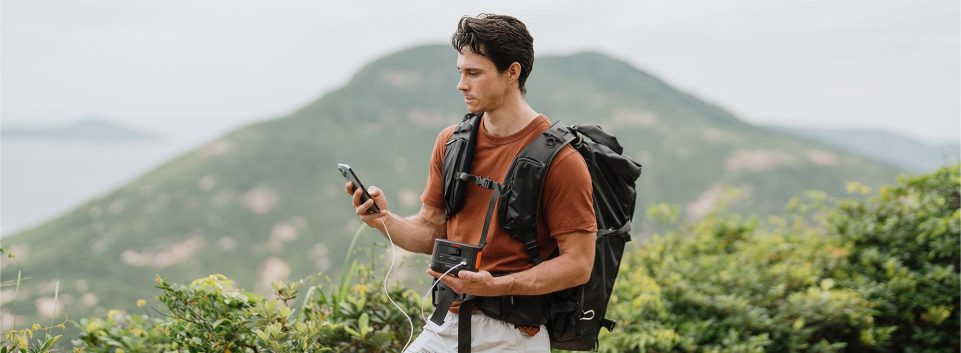Many people find the idea of living off the grid appealing. It conjures up images of a simpler lifestyle, becoming more in touch with nature, and freed from the high costs and dependencies of modern life.
Choosing the off-grid lifestyle is a big decision. It’s not just about where you live, but also how you live. It's a lifestyle change that will have an impact on every aspect of your life, from the food you consume to the way you produce power.
But what does it really mean to live off the grid? And is it as idyllic as it sounds? In this article, we'll explore what it means to live off the grid and give you a checklist of things you'll need to do to make the transition.
What Is Living Off the Grid and Off-Grid Meaning
To live off the grid means different for everyone. Generally, living off the grid refers to a lifestyle where people seek to live a simpler life by reducing the resources that they consume while at the same time working towards the preservation of the environment.
In practice, living off the grid can mean anything from growing your own food to generating your own power. It often includes a move away from traditional forms of housing, such as apartments and houses, in favor of more sustainable options like yurts, tiny homes, or even RVs.
Of course, living off the grid is not for everyone. It can be a big lifestyle change, and it's not always easy. But if you're looking for a way to reduce your dependence on resources, lower your carbon footprint, and live a simpler life, it might be the right choice for you.

Environmental Benefits
One of the biggest reasons people live off the grid is to reduce their environmental impact.
Living off the grid generally means using fewer resources, which can greatly impact your carbon footprint. For example, if you generate your own power with solar panels, you'll use less energy from the grid, producing fewer emissions.
Likewise, if you grow your own food, you'll reduce the water and energy required to produce it. And if you live in a small home or RV, you'll be using fewer resources to heat and cool it.
In addition to reducing your own impact, living off the grid can also help preserve the environment around you. If you choose to live in a remote location, you'll be helping to protect the local wildlife and ecosystems. And if you generate your own power, you'll be reducing the demand for energy from traditional sources, such as coal-fired power plants.
Healthier Lifestyle
Aside from its environmental impact, many people choose to live off the grid in order to lead a healthier lifestyle.
Living off the grid often means eating fresher, healthier food. If you plant and grow your own fruits and vegetables, you'll know exactly what's in them and where they came from. And if you raise your own animals, you can be sure that they've been treated humanely and are free of antibiotics and hormones.
Living off the grid can also help you lead a more active lifestyle. If you have to generate your own power or grow your own food, you'll likely be doing more physical activity than if you were just relying on the resources of the grid. And if you decide to live in a remote location, you'll probably have to walk or bike more which adds to your physical activity.
Cost Efficiency
When you consume a reduced amount of resources, you also tend to spend less money. Many people who live off the grid choose to do so in order to save money. Much like if you generate your own power with solar panels, you may be able to completely eliminate your electric bill. So does growing your own food which means spending less on groceries.
Of course, living off the grid isn't always cheaper. It can be a big investment to install solar panels or build a tiny home. But if you're looking to save money in the long run, it can be a good choice.
Lower Stress and Anxiety
Many people also find that living off the grid can also help reduce stress and anxiety levels. When you're not as reliant on the resources of the grid, you may feel like you have more control over your life. And when you live a simpler life, you may find that you have less to worry about.
Living off the grid can help you connect with nature, which has been shown to reduce stress and anxiety levels. If you live in a remote area, you'll likely have more opportunities to appreciate the beauty of the natural world. And if you generate your own power, you may feel a sense of satisfaction from being self-sufficient.
Challenges of Living Off the Grid
Of course, living off the grid is not without its challenges. One of the biggest challenges is isolation. If you live in a secluded location, you may find yourself feeling lonely or cut off from the world.
And if you're not used to being self-sufficient, you may find the transition to off-grid living to be difficult. You will have to give up some of the amenities that you're used to such as running water and flush toilets. Without regular access to resources, you may have to get creative when it comes to solving problems—which can be a good and bad thing.
But despite its challenges, living off the grid can be a rewarding experience.
How to Live Off the Grid
If you're looking into living the off the grid lifestyle, there are a few things you can do to get started.
First, assess your needs. Are you looking to save money? Or are you more interested in reducing your environmental impact? Once you know what your goals are, you can start to figure out how to best achieve them.
If your goal is to reduce your impact on the environment, you may want to start by generating your own power with wind turbines or solar panels. If you're looking to save money, you may want to grow your own food or install a rainwater catchment system.
Of course, you don't have to do everything all at once. You can start small by making a few changes to your lifestyle. For example, you could start by composting your food waste or using less water. Or you could install solar panels to offset your energy use.
No matter how you choose to live off the grid, the most important thing is to do what works for you. There is no one-size-fits-all solution, so find what works best for your needs and goals. With a little planning and effort, you can start living off the grid today.
Checklist for Living Off the Grid
When it comes to living off-grid, you have a number of essential items that you need. These priority items include:
- Shelter
- Water Supply
- Food supply
- Emergency supplies
- Power Station/Power Source

Shelter
Without a question, one of the first things that anyone who chooses to live off-grid has to decide is what form of shelter they are going to live in. For those who choose to rough it, a cabin in the woods would be the perfect shelter. However, those who choose to go half-on/half-off may opt instead to live in an RV. At the same time, those who are looking for the modern style of living off-grid may opt to move into a tiny home in order to reduce their overall carbon footprint.
Water
The human body can go for days without eating, but it cannot last very long at all without a steady supply of potable water. This is why anyone who chooses to live off-grid must have a reliable water source. For those who choose to live in a rural area, this may mean drilling a well. Others may opt to catch rainwater in barrels or build a filtration system in order to purify lake or river water.
Food
The next priority for anyone living off-grid is to have a steady food supply. For some, this may mean planting and maintaining a garden. Others may choose to raise chickens or goats in order to have a constant source of fresh eggs and milk. Still others may opt to hunt and fish in order to supplement their diet. No matter what method you choose, it is important to have a plan in place in case of an emergency.
Emergency Supplies
No matter how well you plan, there will always be the potential for emergencies. This is why it is important to have a supply of food and water that can last for days or even weeks. You should also have a first aid kit on hand, as well as a supply of any medications you or your family members may need.
Power Station/Power Source
Last but not least, you will need to have a reliable source of power in order to live off-grid. For some, this may mean installing solar panels or wind turbines. Others may choose to use a generator. No matter what method you choose, it is important to have a backup plan in case of an emergency.
A Jackery Power Station can be a great option for those who want to live off the grid in a more modern way. This type of power station uses solar panels during the day to charge up a battery. Once the sun goes down, the battery will then provide power for lights, appliances, and other devices that need it.
Jackery Explorer 1000 Plus Portable Power Station: Best for Off-Grid Living
The Jackery Explorer 1000 Plus Portable Power Station, is a popular 1,264Wh battery backup system that you can take with you wherever you go. It allows you to power all of your basic appliances which makes it the perfect option for anyone who is choosing to go off-grid.
Dual Protection
Because the system is reliant on long-lasting LiFePO4 batteries, it is important to make sure that the system is properly protected. The batteries feature dual protection chips to ensure that they are not overcharged. There are also four temperature detectors that monitor the battery while it's charging and discharging, to make sure that it does not overheat.
Supports Pass through
While other battery backup systems, can only be charged or discharged at any given time, the Explorer 1000 Plus supports pass-through. Pass-through is important for any battery backup system because it allows you to continue to use important or essential gadgets while the battery backup system is charging.
Conclusion
In the end, deciding to go off-grid can be a difficult choice for anyone. There are many pros and cons to the off-grid lifestyle, depending on how extreme you plan on going. However, it is always best to start off small, and then work your way up.
Start by living a modern off-grid lifestyle, and if it feels right to you, then move on to living a half-on/half-off lifestyle, before making the final decision to go completely off-grid. No matter how you choose to start your journey into off-grid living, it is important to make sure that you have all of your basic needs met, including shelter, water, food, emergency supplies, and most importantly, a power station.
If you are interested in finding out more about choosing the off-grid lifestyle, then stay up-to-date with all the latest news and information by signing up for the Jackery newsletter. Not only will you get a regular supply of tips and how-tos, but you will also have access to exclusive deals and discounts on Jackery products.








































































































